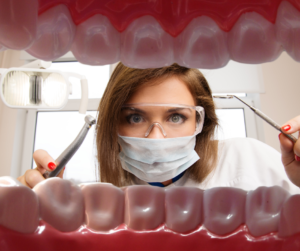It’s essential to visit the dentist or the endodontist. regularly to ensure your teeth and mouth are healthy. However, fear is the number one factor that causes most people to stay away from the dentist’s office. When you consider the phobias people generally deal with, you usually think of heights, snakes, spiders, and death. Visiting the dentist has become the fifth most common fear as people would rather suffer in silence with their health complications than seek assistance from a professional.
There is a solution to calm your fears – sedation dentistry. It’s a process that involves a dentist administering medication to patients, which aids relaxation during dental treatment, such as a root canal procedure. There are various levels of sedation that you can request with the minimal form keeping you awake but relaxed. Higher levels include general anesthesia, where you’re unconscious during the procedure.
Dentists administer sedation in tablet form or Nitrous gas while the latter wears off faster. For more profound sedation, the health professional uses an IV drug.
Some people are skeptical about this form of treatment which is why we’ll take a closer look at the pros and cons of sedation dentistry.
Pros
These are some of the advantages of sedation for your next dental treatment.
1. Calm and Relaxing
The majority of people avoid addressing dental issues for fear of the pain or physical discomfort they could feel during the procedure. Sedatives help eliminate anxiety from the visit, and since they can be administered before the appointment, a patient can walk into the treatment room already relaxed and calm.
People who have severe phobias regarding needles, drill sounds, or other issues that can generate involuntary movement require sedation to keep them still during the procedure so that the dentist can go about their work efficiently.
2. Shorter Visits
Since being sedated keeps you calm and still, a dentist can complete more work within a short timeframe. Some procedures may require multiple visits but more often than not, going under sedation assists dentists to address your dental issues quickly.
3. Pain Reduction
Sedatives are ideal for reducing the pain you may feel during major surgery. Since sedatives have varying capacities for relieving pain, dentists may administer some through local anesthetic.
Cons
As with everything, there’s always another side to sedation dentistry.
1. Temporary Physical Impairment
Taking sedative medication can impact your reflexes and thinking. For this reason, it’s advisable to have someone else drive you to and from your appointment. You may have difficulty talking along with confusion and light-headedness. Your face will likely remain numb for a few hours after the treatment, and you could feel extremely fatigued.
2. Extra Costs
While sedation can help you relax or take the pain away, it could hurt you financially. It’s wise to check if your insurance covers the cost of sedation during your treatment. However, if you have to pay out of your pocket, consider the benefits against this con.
3. Different Effects
Sedatives don’t deliver a uniform reaction as different medications affect people differently. It’s possible to receive a dosage that is either too strong or too weak. Taking the dosage at the wrong time can also result in the sedatives taking effect after the procedure has commenced. However, this is an extremely rare occurrence.
Conclusion
Dentists with proper qualifications and experience are well-versed in sedation dentistry and administer the correct dose every time. There is a possibility that infections can negate the effect of the anesthesia, in which case you’d have to treat it with antibiotics before attempting the treatment once more. Contact The Endo House, we take every care to ensure that you receive the best possible treatment to make you feel comfortable and relaxed.





